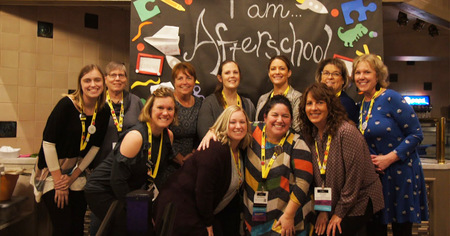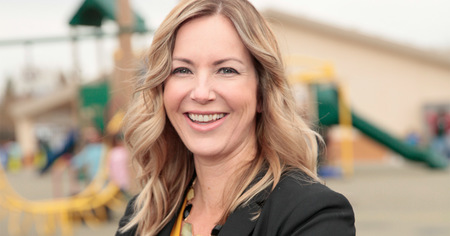The good news: It's not a secret and it's not magic. Their "bag of tricks" is really a set of tools that, when applied consistently, are guaranteed to make learning fun and enlightening.
What are the tools?
1. Knowledge of the stages of child development.
How to engage children is directly related to their stage of development. This knowledge is the first and most important component of the toolkit and the educator should also know something about different temperaments and learning styles.
2. Caring and sensitivity.
Most educators in this field are caring and sensitive; however, it's natural to relate more easily to some children than others. Afterschool professionals need to make the commitment and effort to extend love and support to every child, no matter their individual and cultural differences.
3. Hands-on projects.
Mentally, children are developing from concrete to abstract thinkers. The best way to introduce new academic concepts is through hands-on projects. The more senses that children use in their learning, the better the ideas "stick."
4. Meaningful choices.
It's a good practice to give children choices when possible. This enables children to take an active role in their learning and builds responsibility because they have to reflect on whether their choice was good or bad for them. Additionally, it encourages experimentation and the ability to make mistakes and learn from them.
5. Social component.
Children like to work with their friends. The shared experience of learning something new and solving problems is a great bonding experience that helps to build friendships. Include small group activities whenever possible.
6. Communication and performance skills.
To encourage children to share what they've learned, let them come up with a final presentation or performance and invite their families. This is one of the most effective ways of solidifying learning and also engages families in understanding the goals of your afterschool program.
7. Creative expression.
Expect and encourage creative expression! In your hands-on projects, find ways to engage children with different talents. Include a writing component, a drawing component and a construction component when possible, and be sure to supply a variety of different materials.
8. Develop useful skills.
There are many areas of practical life that children may crave, but don't have the ability to experience between school and home. Try including learning cooking, camping, sports, sewing and mechanical skills in your afterschool program.
9. Identity development.
Children want to know that they have a place in the world. By offering choices of activities, asking for their input, and exploring the things they want to know more about, you will be validating their ideas and helping them to learn about themselves. Afterschool experiences could spark future career interests!
10. Service to others.
Children express a natural empathy when a friend gets hurt and, in turn, feel good when they help someone. Give them experiences where they can feel good about their ability to help others. Start small and possibly grow this activity into a significant service-learning project.
11. Opportunities for leadership.
Afterschool programs can offer many situations in which children can be leaders. One way is having jobs that rotate; children can teach others how to do the job they have just completed. As adults offer more opportunities to lead, children learn to accept greater responsibilities.
12. Make it a game.
Everyone likes a game! Children in elementary grades are becoming interested in competition, are able to follow the rules of a game, and like to compete sometimes and cooperate at other times. Give choices of classic games (such as chess or Monopoly) during free play and encourage children to design their own games.
Educators can't include every one of these tools in every project, but they should try to include as many as possible. This planning sheet can help. Pick a topic to introduce to the children in your afterschool program and use the planning sheet to reflect on why you should—and how you can—include these tools in your future activities.
Want to learn more about positive youth development topics and receive professional development credit? Penn State Better Kid Care, in partnership with the University of Nebraska Extension, provides free* online professional development modules accessible anytime, anywhere for child care and school-age professionals. Approximately 100 hours of school-age professional development are available, including topics in PYD, SEL and STEM. These modules are approved for professional development in 48 states.
*There is no charge to read the content, view the videos, and download and print the activities. To take the assessment and receive a certificate of completion, you will be prompted to pay a $5 fee.
Eileen Wise is a youth development specialist at Penn State Better Kid Care and primary author of the PYD series.
Reference: Penn State Better Kid Care. "PYD Mastery: Learning Environment and Curriculum." Online professional development module.




